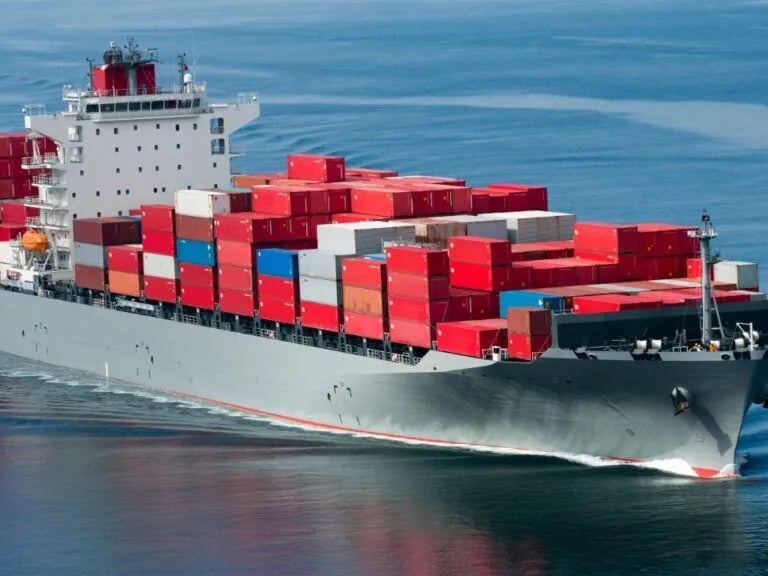Why Are Shipments From China So Slow?
SHIPPING
7/9/20243 min read


Shipping products from China to various parts of the world can often seem to take an excruciatingly long time. Many factors contribute to these delays, and understanding them can help manage expectations and improve planning.
Geographic Distance
China is geographically distant from many of its major trading partners. The sheer distance that goods must travel contributes significantly to the overall shipping time. For instance, shipping to the United States or Europe involves crossing oceans, which adds days, if not weeks, to transit times.
Ocean Freight vs. Air Freight
The choice between ocean freight and air freight is a major determinant of shipping time. Ocean freight is significantly slower, often taking several weeks to a month. On the other hand, air freight is much faster, usually ranging from a few days to a week. However, air freight is also considerably more expensive, leading many businesses to opt for the slower, more economical ocean freight.
Port Congestion
Port congestion is another critical factor. Major ports in China, such as Shanghai and Shenzhen, handle massive volumes of cargo daily. Delays in loading and unloading ships due to congestion can add several days to the shipping process. This issue is exacerbated during peak seasons, such as the lead-up to major holidays like Christmas or Chinese New Year.
Customs Clearance
Customs clearance is a necessary but time-consuming process. Both exporting from China and importing into the destination country require thorough inspections and documentation checks. Any discrepancies or missing documents can cause significant delays. Moreover, stricter regulations and inspections in certain countries can prolong this process further.
Production Delays
Before goods even leave China, they must be produced. Manufacturing delays are common and can occur due to various reasons, including shortages of raw materials, labor strikes, or technical issues. These delays in production naturally push back shipping schedules.
Logistics and Handling
Efficient logistics and handling are crucial for timely shipping. However, logistical challenges such as transportation bottlenecks within China, inefficient coordination between different transportation modes (e.g., truck to ship), and handling issues at warehouses can all contribute to delays.
Weather Conditions
Adverse weather conditions can significantly impact shipping times. Typhoons, heavy rains, or severe storms can halt shipping operations, delay departures, or slow down the movement of ships at sea. These weather-related delays are unpredictable and can add days or even weeks to shipping times.
Holidays and Festivals
China has several major holidays and festivals, during which many factories and ports either shut down or operate with reduced staff. The Chinese New Year, in particular, causes widespread factory closures for about two weeks, which can create a backlog and subsequent delays in shipping.
Container Shortages
A shortage of shipping containers can also lead to delays. This issue became particularly prominent during the COVID-19 pandemic, as disruptions in global trade patterns caused containers to be stuck in various parts of the world, creating an imbalance and shortages in key locations like China.
The Impact of COVID-19
The COVID-19 pandemic has had a profound impact on global shipping. Lockdowns, reduced workforce, and disruptions in supply chains have led to significant delays. Even as the world recovers, the ripple effects of these disruptions continue to affect shipping times.
Cost Considerations
The cost of shipping influences the choice of shipping method, which in turn affects shipping time. Businesses often opt for cheaper, slower shipping options to reduce costs, even if it means longer transit times.
Infrastructure Limitations
While China has invested heavily in its transportation infrastructure, limitations still exist. Bottlenecks in rail transport, inadequate road networks in certain areas, and limited capacity at some ports can all contribute to delays in shipping.
Quality Control
Quality control checks are essential to ensure products meet the required standards before shipping. However, thorough quality inspections can take time, especially if defects are found and need to be rectified, causing delays in the shipping schedule.
Freight Forwarders and Shipping Agents
Freight forwarders and shipping agents play a crucial role in managing the shipping process. Their efficiency and reliability can significantly impact shipping times. Delays can occur if there are miscommunications, errors in documentation, or inefficiencies in their operations.
The Role of E-commerce
The rise of e-commerce has led to increased demand for shipping services. Platforms like Alibaba, AliExpress, and JD.com have facilitated a surge in international shipments from China. This increase in volume can strain shipping resources and lead to delays.
Strategies to Mitigate Delays
To mitigate shipping delays, businesses can adopt several strategies. These include better planning and forecasting, diversifying suppliers, using multiple shipping routes, and investing in faster shipping options when necessary.
Conclusion
Understanding the multitude of factors that contribute to shipping delays from China can help businesses plan better and set realistic expectations. While some delays are unavoidable, proactive measures can be taken to minimize their impact.


